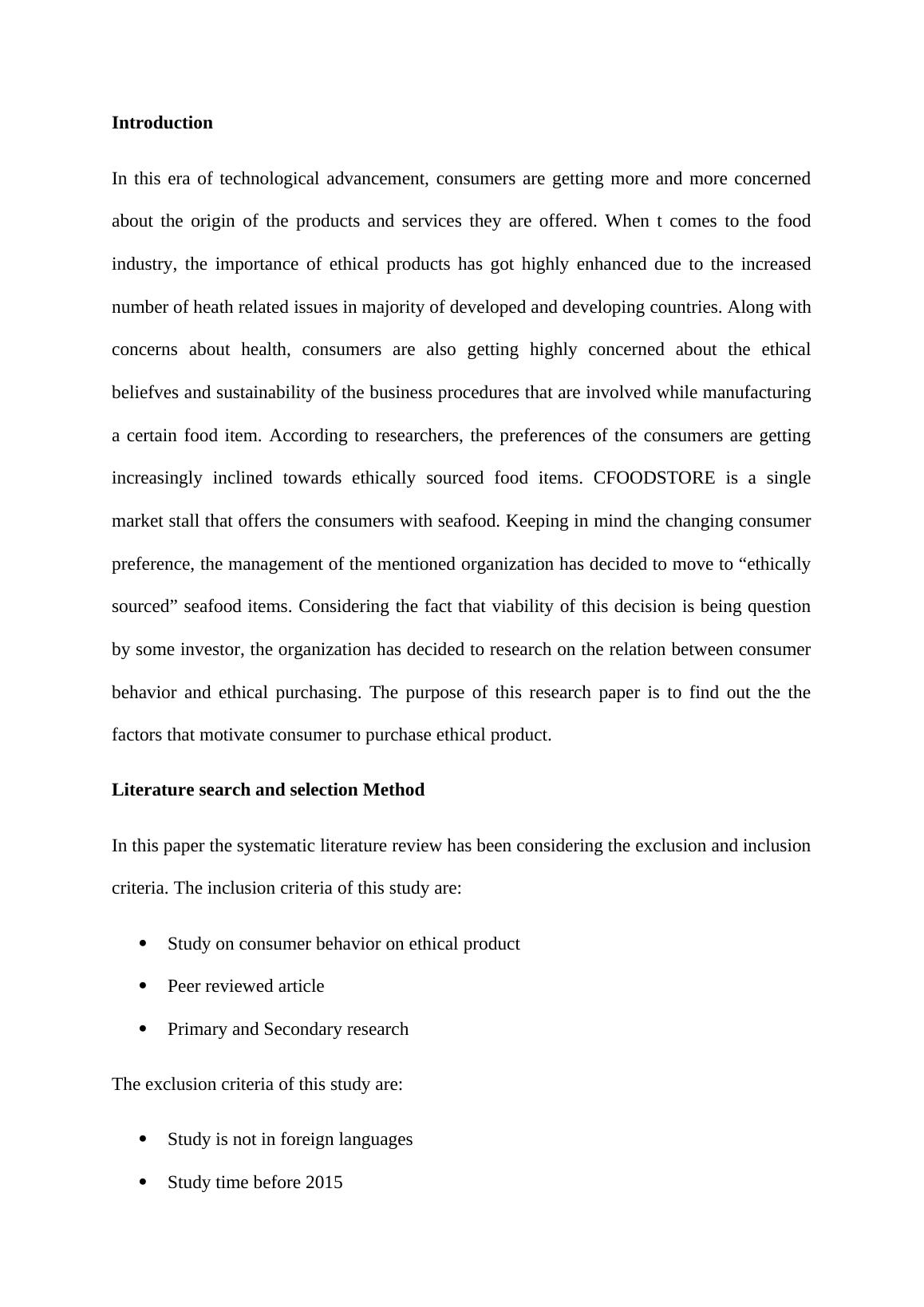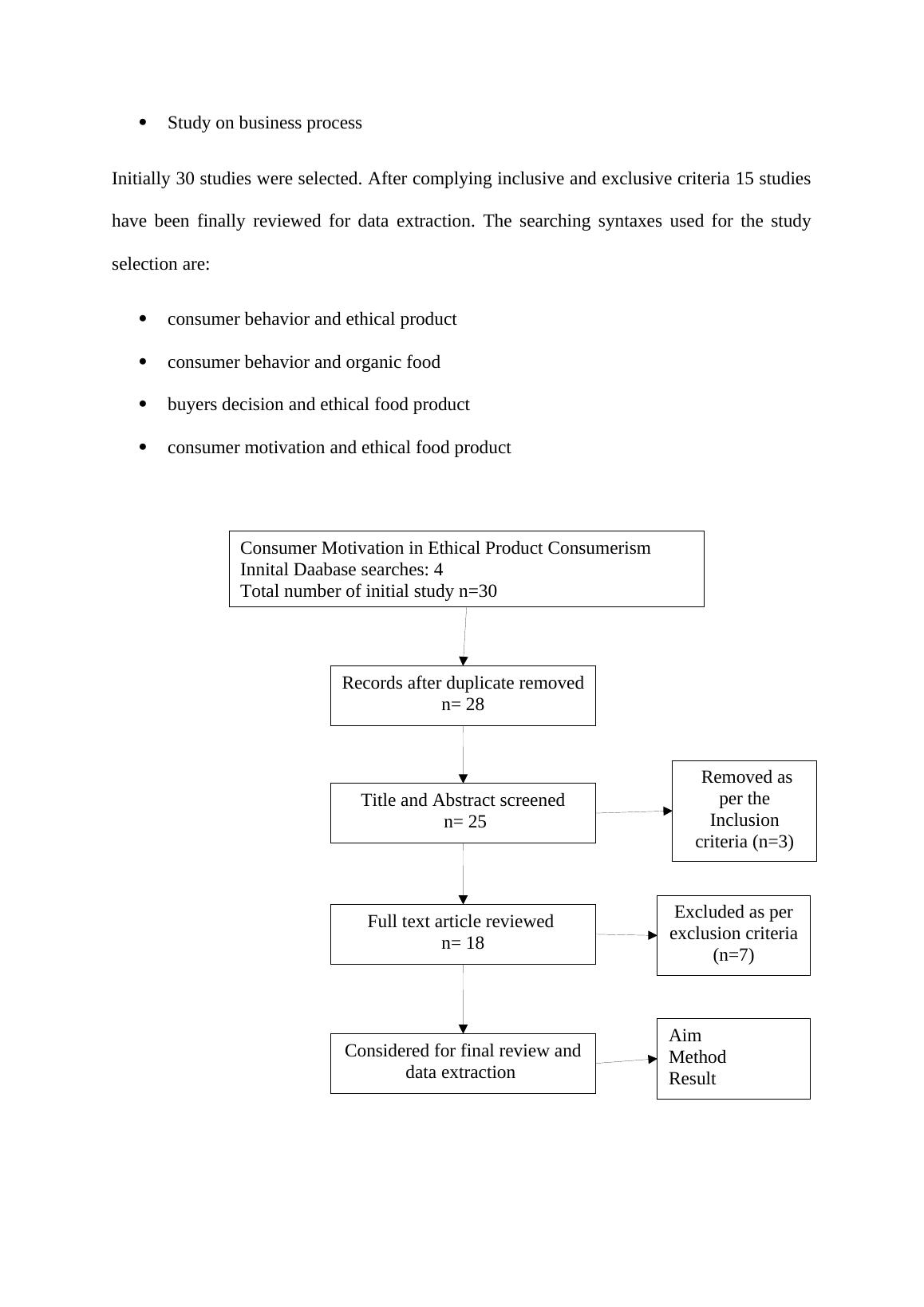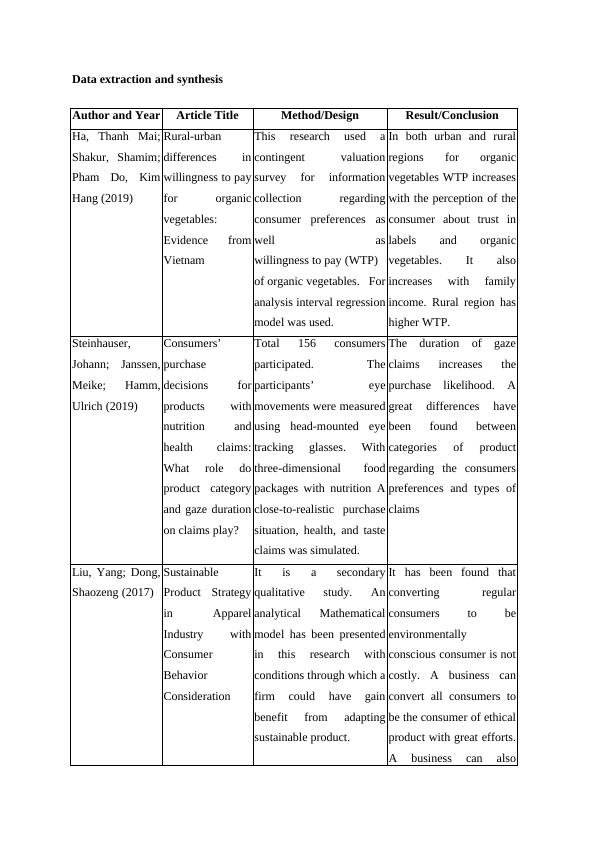Consumer Motivation in Ethical Product Consumerism.
Conduct research on the target market of 'ethical consumers' in the seafood industry and provide recommendations for CFOODSTORE on their business strategy.
12 Pages2682 Words3 Views
Added on 2022-10-19
About This Document
Hi there, i have listed the requirements in the brief. A sample of what is required attached too
Consumer Motivation in Ethical Product Consumerism.
Conduct research on the target market of 'ethical consumers' in the seafood industry and provide recommendations for CFOODSTORE on their business strategy.
Added on 2022-10-19
ShareRelated Documents
End of preview
Want to access all the pages? Upload your documents or become a member.
Journal of Business Ethics
|13
|2768
|15
(PDF) Ethical Consumerism and Everyday Ethics
|5
|1561
|141
Creatine Supplement for Resistance Training Performance in Physically Active Adults
|7
|1223
|62
Systematic - Literature Review
|11
|2297
|15
Business Research on Sustainable Ethical Sourcing: A Case Study of Starbucks
|13
|2680
|10
Effectiveness of Cognitive Behavioral Therapy in Depression among the Elderly in Age care aged 75 years and above in Australia
|32
|8653
|219




